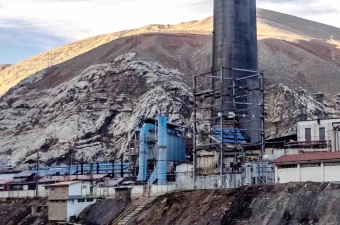CNV Internationaal welcomes an assertive European strategy for critical raw materials, to support ambitious climate and energy objectives
The Commission proposal offers a strong basis for a strategy to combine more resilient supply chains, circular economy, research and innovation and robust and enforceable human rights and labour rights standards worldwide.
However, we call to strengthen the social dimension of this strategy, both within and outside the EU.
- The diversification of supply chains should be guided by human rights and sustainability.
The need to secure a resilient supply of raw materials should not overly focus on extracting materials from third countries. Instead, more ambition for recycling and eco-design is needed to demonstrate EU commitment to a concrete and tangible circular transition.
- It is good that the criteria for the selection of strategic projects include labour rights, quality jobs potential, meaningful engagement with social partners and responsible business practices.
However, additional safeguards need to be built into to ensure the streamlining of permitting, especially for strategic projects, does not come at the expense of (existing and future) environmental, public health or social standards.
There should also be strengthened access to remedy in case the projects cause negative impacts.
- The Regulation refers to the European Principles for Sustainable Raw Materials which lists international instruments covering all aspects of sustainability.
These principles are a step in the right direction but should be transformed into binding sustainable raw materials standards, and integrated in the just transition pacts.
Sustainably and responsibly sourced raw materials should be defined on a strong social and labour rights pillar. This should include freedom of association, collective bargaining, good working conditions, OHS, and living wages.
While no voluntary initiative can replace the essential role of legal frameworks to protect social and environmental values, or corporate human rights due diligence obligations, they can play a role in effective implementation.
The Regulation aims to better organise all the certification schemes which exist related to the sustainability of critical raw materials by recognising some of them, following specific criteria which include socially responsible practices, including respect for human rights and labour rights.
We are of the opinion that these should be aligned with and built upon the Initiative for Responsible Mining Assurance (IRMA) standards.
Sustainable raw materials (primary and secondary) should be based on a clear definition which includes the presence of strong and independent trade unions and collective bargaining.
- We ask the European Commission to ensure that any raw materials strategies involving third countries or so-called partnerships also take into consideration the needs and interests of workers and people in the countries from which raw materials are to be exported to Europe.
This has to be done in total commitment to the Universal Declaration of Human Rights, ILO labour standards, including the latest resolution on Just Transition and the UN Guiding Principles for Business and Human Rights.
To the extent that these partnerships have a trade dimension, strong and enforceable sustainable development chapters must be integrated in all existing and future trade agreements, whether bi-, pluri- or multilateral, aimed at concretely reinforcing labour rights and collective bargaining.
These agreements should also result in deepened industrial cooperation, with additional value-creation within trading partners.
For such strategic projects in third countries, the promoters will have to create economic and social benefits in the country, including the creation of decent work and strengthen social dialogue in line with international standards on responsible business conduct (UN and OECD) and ILO norms and propose a mechanism to evaluate enforcement.
Publication date 17 07 2023


